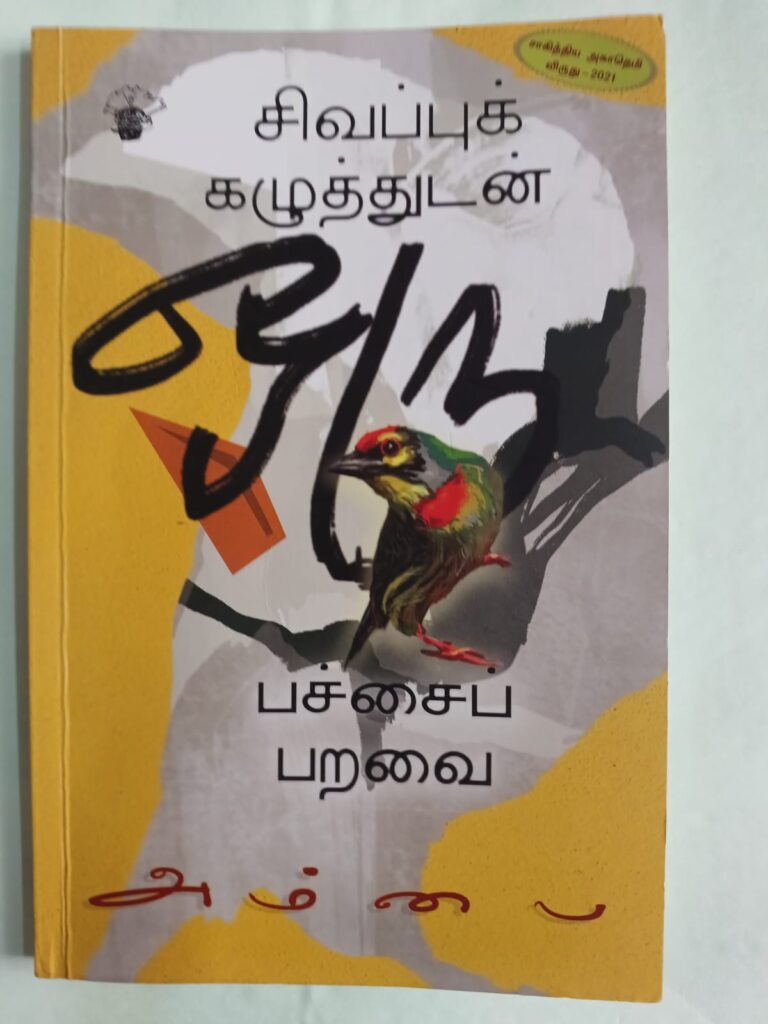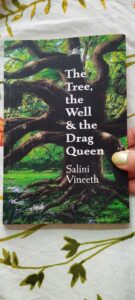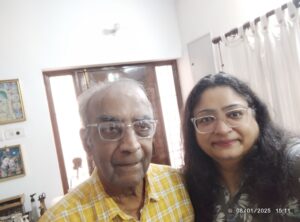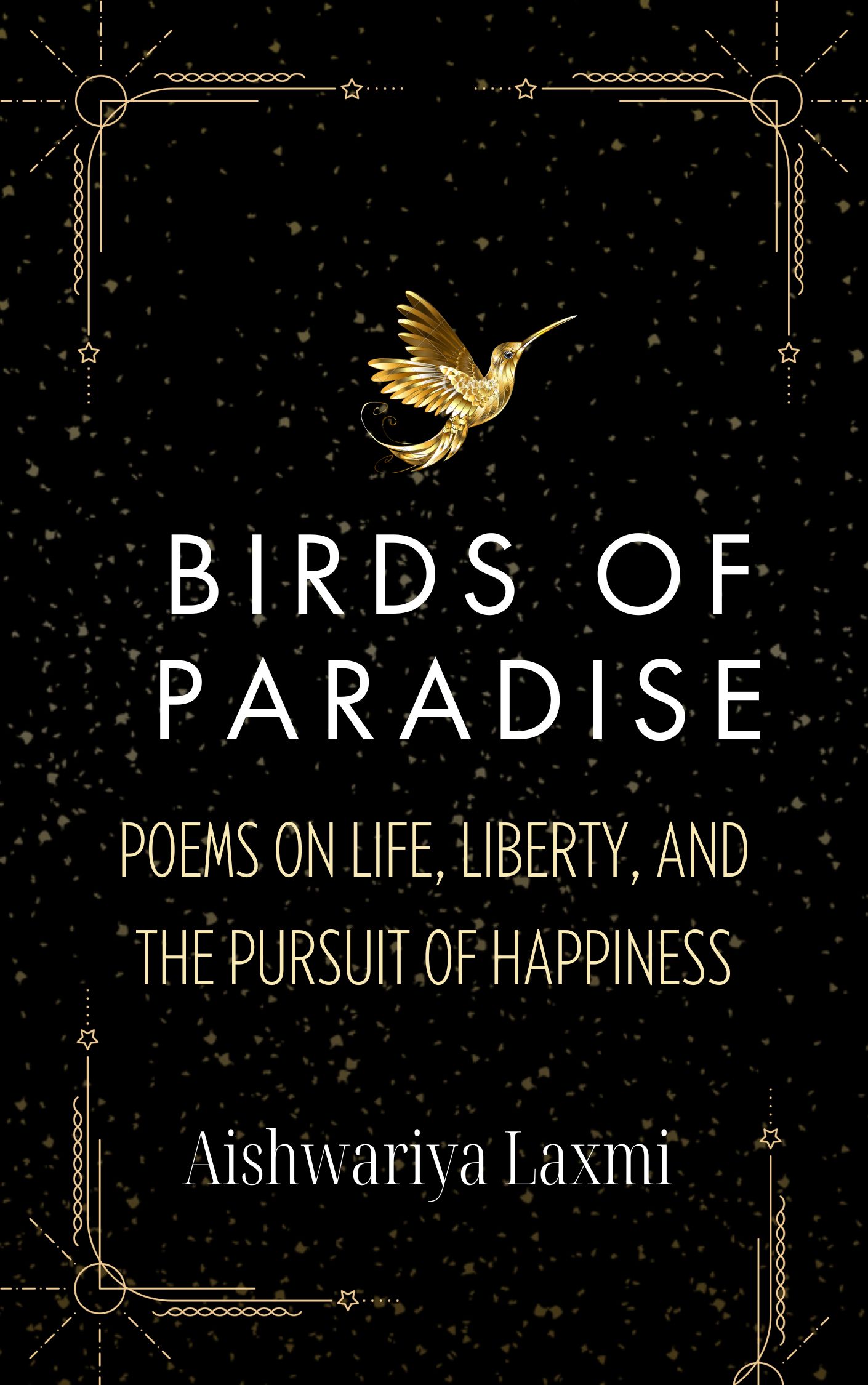Book Review by my dad
Civappu Kazuttudan Oru Pachai Paravai, 18th Edition, Kalachuvadu Publications, Nagercoil. (2024)
Ambai( Dr C.S.Lakshmi) b.1944 is a feminist writer who has written eight collections of short stories in Tamil, and four books, three on women writers and artistes, and another, a translation. She received the Sahitya Academy Award in 2021 for this book. She lives in Mumbai with her family.

The central theme of this collection is on women’s issues, highlighting the constriction of social mobility and choice in matters concerning family, elder care, disability, housing, violence, amid the relentless forces of urbanization, religious intolerance, and male domination in modern society. Poverty, isolation, and circumstances force them to take desperate measures. Her women come from many walks of life- housewives, teachers, artistes, maids, tongawalis, nuns, retirees -and from different regions like Punjab and Germany. They too have their story.
Ambai’s fiction elaborates on seemingly irrelevant details and individual characterization, such as it is, reminding the reader of the Oxford Seminarian John Duns Scotus’ “thisness”. For example, “The sunlight filtered through the leaves of the trees and glistened on the lake like scattered blossoms “( page 93). “As the keeper of the old books godown turned the key to close it, the rusted lock cried faintly like an animal in pain”(page 36). ” He could have instantly crossed six rivers or six oceans, but he could not bridge the six years gap between them “(page 87).
The title story is not just about any bird, but a coppersmith barbet bird, which makes a repetitive’ cuk,cuk ‘sound reminiscent of a metal worker hammering on copper. Vasanth rues that the bird cannot sing as its throat is stuck, just as his daughter cannot hear. The bird can fly in freedom though, and so does he. His wife can understand why he does so, even as she supports the daughter. Two of the stories, ‘The Lake’ and ‘Lion’s tail’ have elements of magical realism. In ‘The Lake’, a man undergoes a transformative experience after a dip in it, and appreciates at first hand, the effects of violence. The interaction of a woman with an otherworldly cyborg in the latter story leads to an unexpected outcome.
Ambai shows meticulous attention to detail, whether in the making of a dish or a beverage or descriptions of objects or people, with an eclectic mix of quotes from literature, art, music, and spirituality. These thirteen stories encapsulate much of the human condition in these times, and there is plenty to ponder over where we are headed.











